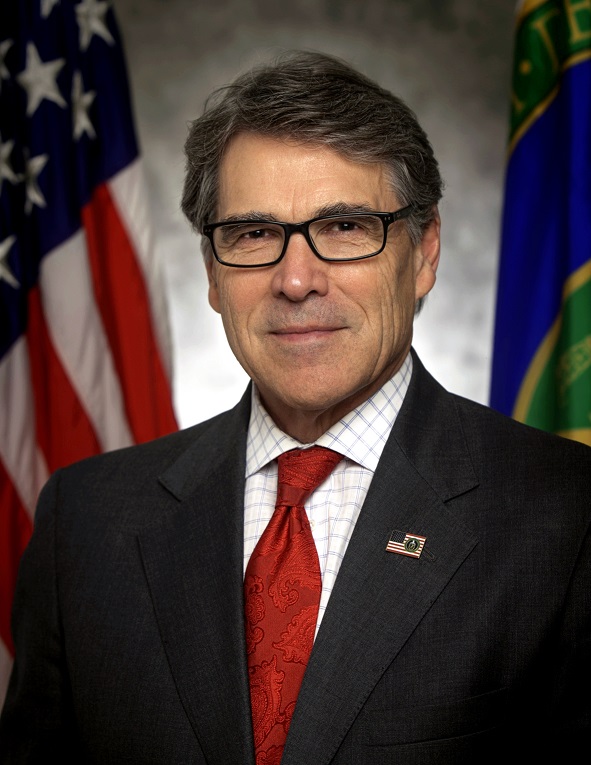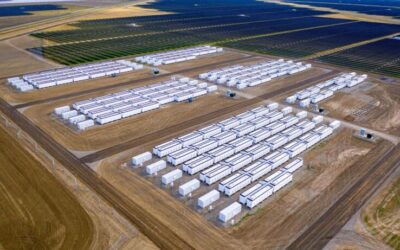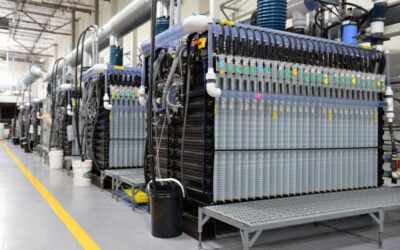
The US Department of Energy’s (DOE) assessment of reliability and security of the country’s electrical grid network is “encouraging”, the Energy Storage Association’s head has said in her initial reaction to the report’s publication.
Energy secretary Rick Perry ordered his staff in April to produce the report, which was published on Wednesday. Described as a comprehensive analysis and including recommendations to policymakers, regulators and the general public on future policy options, the DOE has now invited the public to offer comments on the “Staff reports on electricity markets and reliability” report via its website.
Our sister site PV Tech reported today that the omission of passages supportive of renewable energy economics – in relation to fluctuating fossil fuel prices – found in a leaked early draft of the document were expunged from the final version. Some PV industry figures also commented to say that the report overstated the challenges in integrating renewables, while others expressed their satisfaction that the study was undertaken in the first place.
Meanwhile, DOE appears to consider energy storage as a vital part of the grid-level toolkit – if there is a desire to integrate increasing levels of variable renewable energy.
Try Premium for just $1
- Full premium access for the first month at only $1
- Converts to an annual rate after 30 days unless cancelled
- Cancel anytime during the trial period
Premium Benefits
- Expert industry analysis and interviews
- Digital access to PV Tech Power journal
- Exclusive event discounts
Or get the full Premium subscription right away
Or continue reading this article for free
“Energy storage will be critical in the future if higher levels of VRE are deployed on the grid and require additional balancing of energy supply and demand in real time,” the report says, in a section on energy storage.
Perhaps ominously, the same section concludes: “However, the need for storage may not be as great for a grid more reliant on traditional baseload generation.”
With President Trump extolling the virtues of so-called “clean coal” in the past few days, some alarm bells might be raised by the ambiguous language.
The report does then detail the various roles energy storage can perform and explains that according to data from the DOE’s own Grid Energy Storage research programme, obstacles that still need to be overcome include cost reductions and technology improvements, the ability to monetise grid services, validation of system safety and reliability, an “equitable regulatory environment” and industry acceptance of the technology.
Kelly Speakes-Backman, the recently appointed CEO of the Energy Storage Association, sent out her response to the report, while pointing out that with just a few hours passed since publication, the statement ESA sent out was very much an early, initial reaction.
“The Energy Storage Association (ESA) is encouraged by its initial review of the Department of Energy (DOE) key findings from their report on electricity markets and reliability,” Speakes-Backman said.
“Although the scope of the report was limited to the role of traditional grid assets, the study reinforces the urgent need for expanded deployment of resilient and adaptable energy storage systems to strengthen our nation’s electricity grid infrastructure.
“The report plainly states that advanced energy storage systems are critical to ensuring that electricity is reliable, affordable, and secure, and that there are thousands of systems already deployed supporting our grid today. These systems are able to provide multiple values to the grid simultaneously, and provide grid operators and utilities with a new tool and capabilities that are able to improve grid reliability, efficiency, and security.
“We also agree with the key findings that better strategies are needed by markets and in resource planning to properly reward the values that energy storage systems provide to the grid, especially increased reliability and resiliency. In order to deliver safe, reliable, affordable, and sustainable energy for everyone, our regulators and grid operators need a diverse arrangement of flexible resources they can call upon to provide secure energy for today and ensure we are prepared for the challenges of tomorrow.”





